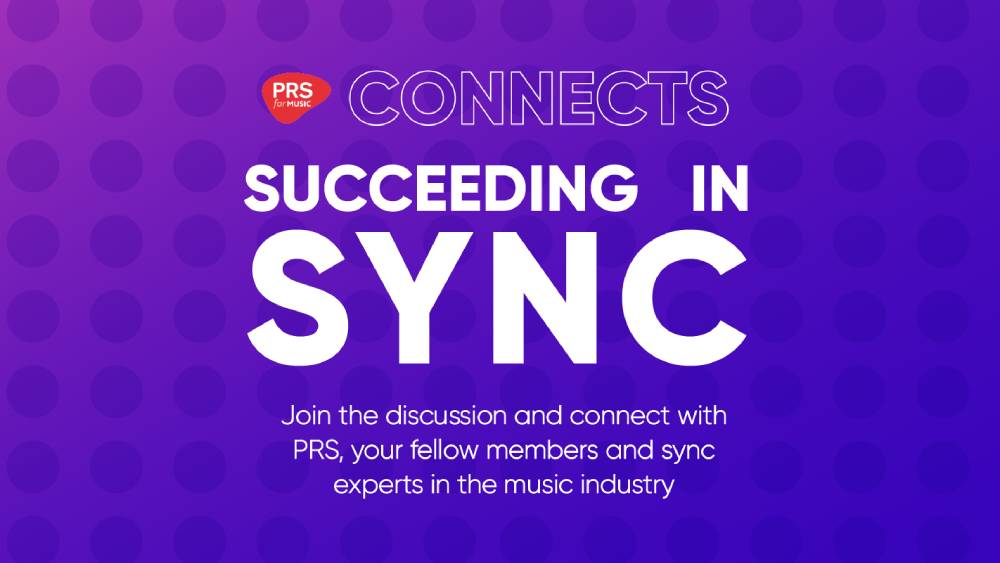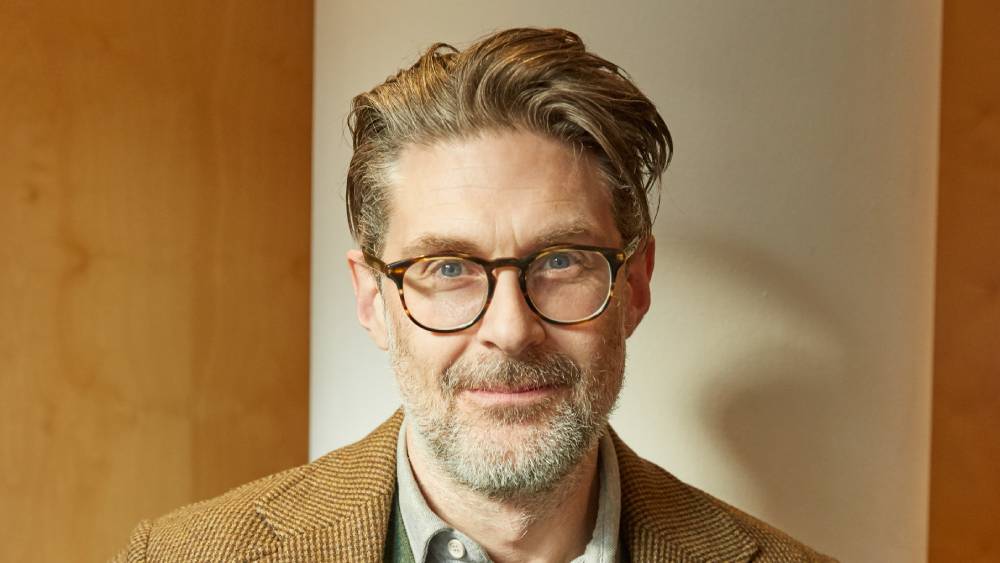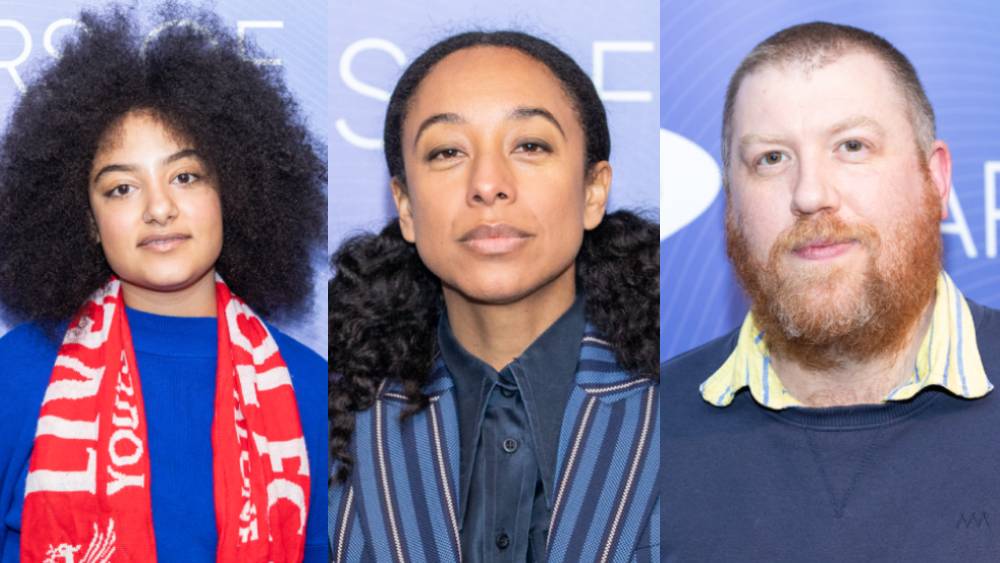Sync is widely considered to be one of the optimal ways for music creators to make money from their music while simultaneously growing their audience. It’s no wonder, then, that sync is a highly competitive sector of the industry where contacts, experience and reputation are all crucial.
Should you be offered a sync deal, though, the next steps of the process can present a whole new set of challenges. To ensure that these important agreements work for you as an artist, PRS and MCPS members can contact their society for support, as Sophie Elliott, Business Development Manager at PRS for Music, explains.
‘Our work in the commercial partnerships department is to seek out and manage areas that can generate revenue for our members,’ she tells M. ‘Our role is to essentially act as the business powerhouse behind members once they’ve been presented with a sync opportunity.’
We asked Sophie, whose specialism lies within media licensing (meaning she works primarily ‘across commercial sync and production music, as well as PRS licensing for different platforms’), for her insight into how PRS can support members who land these coveted sync opportunities.
What does PRS offer to members with its sync service?
‘Some publishers and writers have full sync departments representing them, but many do not. If there’s a time, knowledge or experience gap when it comes to negotiating sync deals, then this is where PRS can assist. We operate a full synchronisation licensing service where we manage the process from initial enquiry through to negotiations, contracts and invoicing.
‘We use our connections, knowledge and research to scope out the potential sync deal. We gather all the information about the proposed use of the music and review it in the context of the market, type and size of production, territory and popularity of the track. We then present our recommendation — alongside any benefits, drawbacks or anything else we think relevant — so you’re in the best position to decide if you’d like to permit the usage and agree the deal.’
How can PRS members access this service?
‘Commercial sync falls under MCPS rights, so you should ensure that you’re signed up to MCPS and all your works are registered with both MCPS and PRS — fill out both the performing rights [PRS] and mechanical [MCPS] shares when doing this via Register My Music. When you sign up to MCPS you need to assign your “mandate” — AKA sync rights — to MCPS to access our sync service. If you didn’t do this when you originally became an MCPS member, it can still be done by raising a case with Member Support via the portal on your online account.
‘You can then either choose for our team to handle all the sync enquiries you receive on your behalf [known as MC], or for the service to be on a first-call [FC] basis. This means that if we get an enquiry directly we will automatically take it on, but if you receive it first you can choose to either administer it yourself or nominate PRS to handle it on your behalf.
‘Assuming that’s all covered, when you’re approached with a sync opportunity you can email us at our dedicated inbox with the details. One of our consultants will then reach out for more info and take over the communication with the enquirer on your behalf, while offering advice to you throughout the process. The same applies if we are contacted directly by someone interested in using your music. We work with members of varying confidence: some know exactly what they want and ask us to focus on specific goals, while others appreciate our insight and advice every step of the way — we can do both.’
What can members do to secure sync deals?
‘Firstly, if you’d welcome the added support, make sure you’re signed up to access the sync service, your song registrations are accurate and your details in your account are up to date so we can easily contact you if someone gets in touch with a sync opportunity. Sync moves fast, so if we can’t get hold of you quickly for approval, there’s a chance we’ll lose the deal. This is especially important for members who don’t have international representation, as we get a lot of enquiries from overseas in different time zones.’
‘Our role is to essentially act as the business powerhouse behind members once they’ve been presented with a sync opportunity.’
Do you have any advice for songwriters hoping to land their first sync deal?
‘Hone your craft, be bold and put your music out there. It’s a massively competitive market, so make sure that what you're producing is not only creatively great, but the production value is very high. Nowadays there's so much kit and tech about, so if you're putting your music forward [for consideration] it’s got to sound professional.
‘Gigging and self-promotion on social media can also be key, and will help get you the exposure that makes music supervisors take note. There are also always trends in TV, gaming, film and advertising, so it’s a good idea to keep an eye on what’s being released so you know what music is currently popular and where your work might best fit.
‘If you get the opportunity to pitch something for a sync placement, make sure what you’re pitching is appropriate. For example, a heavy grunge track probably isn’t what a supermarket chain wants for their latest advert, which will often only last 30 seconds and is nearly always uplifting. And as beautiful and cinematic as a drawn-out 90-second emotive build might be, it’s unlikely to work in an ad for the same reason — but it could place perfectly in a film or game.
‘In terms of getting your work in front of music supervisors, see who’s working on the shows, games, films or adverts you’re watching and reach out to them via their web pages or on socials. The UK is a central hub for film and TV production, so go to networking events, like PRS Connects, and if there’s a music supervisor on a panel, try and grab them for a quick chat afterwards — they’re used to it!
‘Just because you may not have had any of your music used in a sync placement before doesn't mean you can't create a showreel or demo with your music overlaid on existing scenes. Anything you can do to help a music supervisor picture how your music could be used is going to help.’
What’s important to keep in mind when getting involved in sync?
‘Think about how you want your music to be used, what you want your music to be associated with and how can you make a sync work for you in terms of your overall career. For instance, if you’re a staunch vegan, you might not want your work used on an advert for a meat product. Consider how a sync and an association with a brand or product might fit with your existing image and listeners, or your marketing and release plans: can you make the most of the timing to gain any added exposure? You’ll then be able to make the most of the opportunity, benefitting your core aims and ambitions as a music creator.
‘Sync can provide an additional source of income, so know the worth of your work and be informed to ensure you get a fair deal — that’s where we can come in. PRS’s sync service means that you’ve got another person in your corner who can explain any parts of sync you may not understand, ask the right questions on your behalf and empower you to feel more confident in how the sync industry works. It’s there to be used!’





